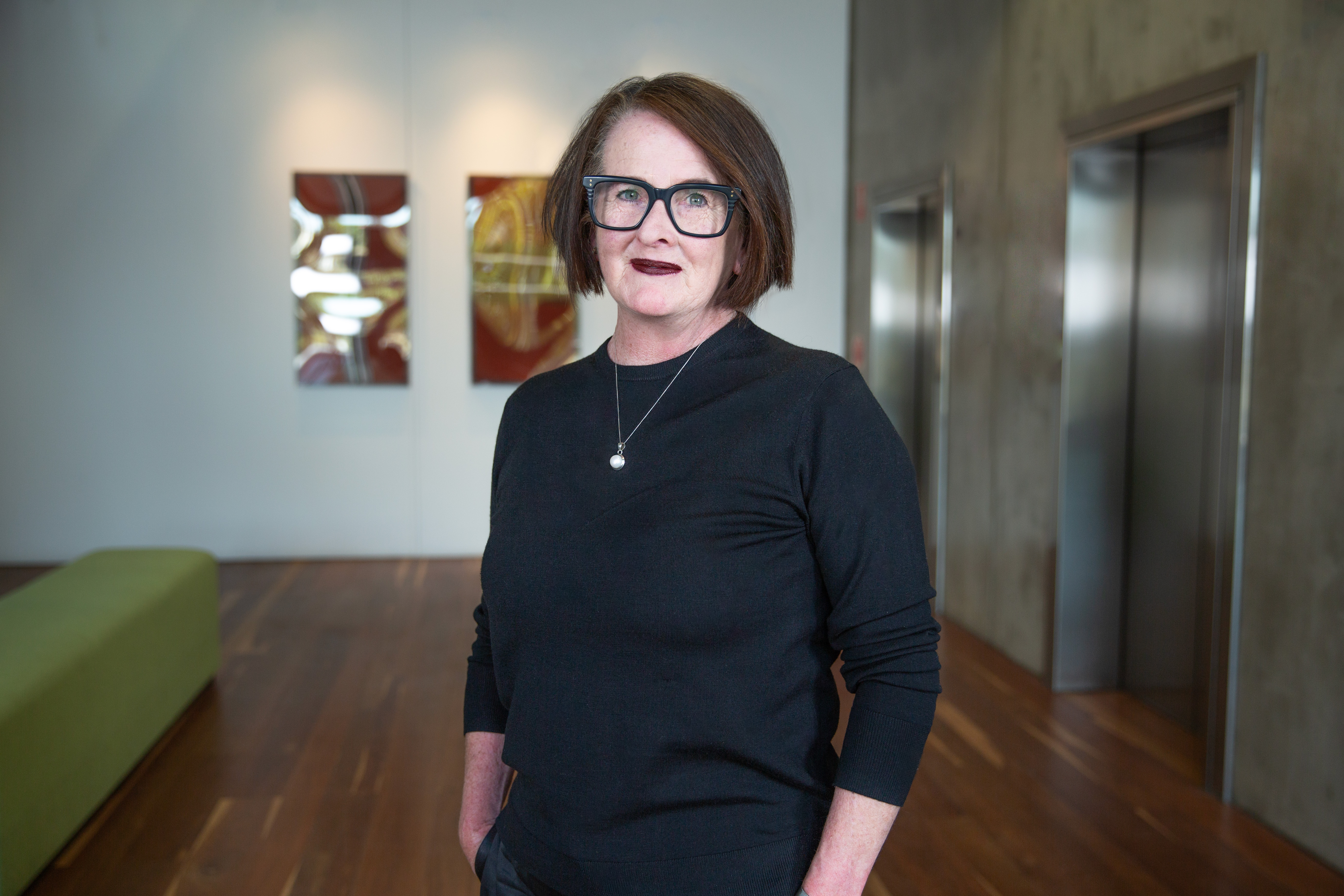‘Get a trade or go to uni’ is a false binary choice

Swinburne's Pro Vice-Chancellor and Chief Executive Officer, Vocational Education and Training Madelyn Bolch.
In summary
Opinion for The Australian by Pro Vice-Chancellor and Chief Executive Officer, Madelyn Bolch.
The longstanding debate of ‘get a trade or go to uni’ might finally be over. As Australian education charts a new course towards the future, this binary is increasingly seen as a relic of yesteryear’s thinking, failing to address the pressing needs of a nation grappling with dire skills shortages.
Last week’s final report of the Australian Universities Accord has shown a bright (and much overdue) spotlight on this issue, finally giving vocational education and training its long-overdue recognition alongside higher education.
As someone who has navigated the corridors of education for more than three decades, I’ve witnessed the fluctuating esteem in which vocational qualifications are held. Yet, the undeniable truth remains: Australia’s ambitious goal of having 80 per cent of its workforce not just finish high school but proceed to attain further qualifications from TAFE or university by 2050 demands a radical rethinking of our educational pathways.
The Accord report underlines this, stating that only by intertwining the strengths of higher education with an expanded vocational education and training (VET) system can we meet the nation’s skills needs.
Enter the concept of dual-sector institutions like Swinburne University of Technology, one of just six in Australia. Here, as Australia’s highest ranked dual sector provider, we welcome students to begin their education journey at any tertiary level, seamlessly transitioning between vocational training and higher education across a broad spectrum of subjects. Students can first acquire practical skills in areas such as civil and mechanical engineering, robotics, and mechatronics through a diploma program. They then have the opportunity to enhance and expand these technical skills by pursuing a bachelor of engineering or computer science, integrating their practical knowledge with theoretical understanding.
This model stands as a testament to the power of combining practical skills with academic knowledge to address both the challenges of lifelong learning and the ongoing skills crisis. This model not only aligns with the Accord report’s call for robust partnerships across government, tertiary providers, industry, and unions but also presents a viable blueprint for tackling Australia’s skills shortages head-on.
The necessity for such an approach is clear. With nine out of ten future jobs requiring a tertiary qualification, evenly split between VET and university pathways, the current skills shortage underscores the urgency of viewing universities and vocational training as complementary forces rather than competitors.
Urgent workforce shortages in sectors like the care economy – particularly allied health and aged care – place real urgency on all of us. Dual-sector universities like Swinburne are not just institutions but ecosystems capable of delivering the comprehensive education and training envisaged by the proposed TAFE Centres of Excellence.
Swinburne’s achievements in this domain are noteworthy. In 2023, one in five VET students went onto advance to a higher level of study – a figure higher than the national average for TAFE networks. It’s evident that making it as easy as possible for students to transition from TAFE to university, like at a dual-sector university, is not just working but thriving.
The report’s call to action for the Australian government to partner with select tertiary education providers like Swinburne to rapidly equip students with innovative skills highlights the critical role these institutions play. This is not just about filling existing jobs; it’s about preparing for the industries of the future – space, energy transition, medical technology, cyber security and beyond – that will require a workforce adept in both theory and practice. It’s about acknowledging that the path to a robust, skilled workforce is not linear but multifaceted, requiring the kind of flexible, transferable skills that only a holistic approach to education can provide.
The time has come to move beyond the outdated ‘trade or uni’ debate and embrace a future where education is as dynamic and diverse as the workforce it aims to create. The Australian Universities Accord report has laid down the gauntlet, and institutions like Swinburne are rising to the challenge. It’s a direction that promises not just to address the immediate skills shortage but to forge a workforce capable of navigating the complexities of tomorrow.
For Australia, the choice is clear: the future lies not in choosing between vocational education and university, but in embracing the strengths of both. And dual-sector universities are best prepared to answer the call.
This article was originally published in The Australian.
-
Media Enquiries
Related articles
-

- University
‘Get a trade or go to uni’ is a false binary choice
Pro Vice-Chancellor and Chief Executive Officer, Vocational Education and Training Madelyn Bolch on why choosing between uni and a trade should be a thing of the past.
Monday 04 March 2024 -

- University
Swinburne welcomes new National Skills Agreement
The funding agreement will revitalise the skills and training system in Australia.
Tuesday 17 October 2023 -

- University
Swinburne climbs in Times Higher Education World University Rankings by Subject 2024
Swinburne University of Technology has excelled in the 2024 Times Higher Education World University Rankings by Subject, with six subjects ranked in the top 250 worldwide.
Thursday 26 October 2023 -

- Student News
Swinburne VET showcases talent at Worldskills
More than a dozen Swinburne VET students participated in Worldskills showcase of vocational education talent
Friday 23 December 2022 -

- Trades
Swinburne carpentry community gives back in Backyard Blitz
An eastern suburbs family has received a backyard makeover thanks to Swinburne carpentry educators, students and alum
Friday 25 November 2022

